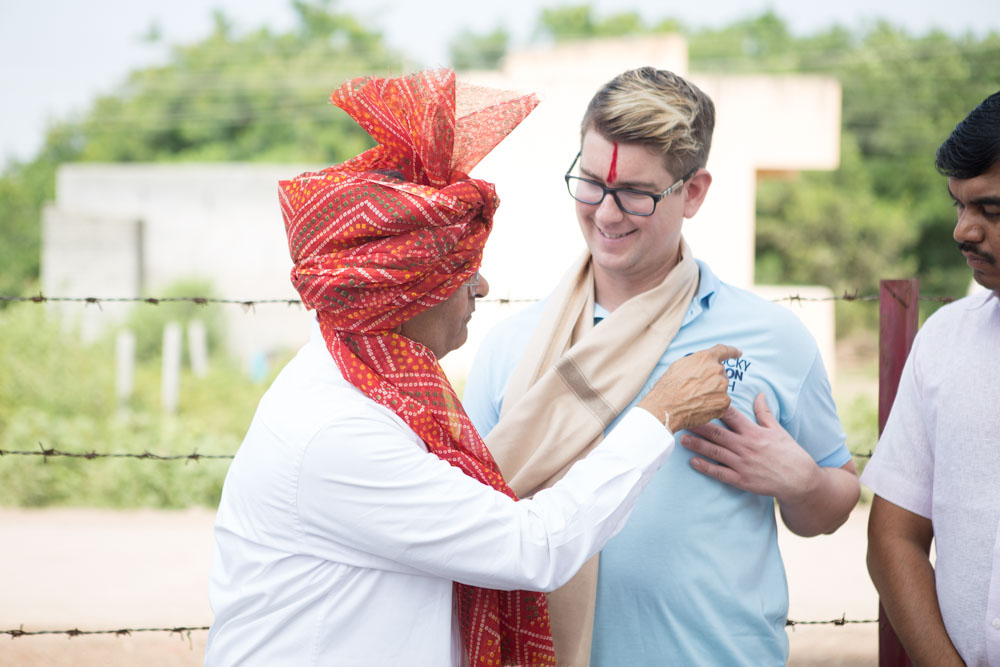“The lesson of start-ups is that there will be failures and that is okay. It’s okay to have an idea and pivot when needed.”-Lydia Summerlee, Lucky Iron Fish
Lucky Iron Fish (LIF) is a great example of how a social enterprise scaled up (no pun intended) and pivoted their business strategy as they became what seemed like an overnight success. Lydia Summerlee, Impact and Engagement Specialist of LIF, takes us back to the very beginning of their journey:
“Research started in 2008 by Dr. Chris Charles. He was doing work on water filtration in Cambodia and realized that women were extremely iron deficient and wanted to do something about it.”
Dr. Charles found that age-old technology such as cast iron cooking could be used in a more efficient way. They eventually developed a block of iron and tried to encourage women to utilize it in their cooking. However, Lydia explains that no one wanted to use this piece of iron block and thought it was “garbage” in their cooking:
“After conducting some research, we figured out that the symbol of luck in Cambodia and many other Southeast Asian countries was a fish. By changing the disk or block or iron into a fish, our compliance rates went from 2% to 92%.”

Because of the immediate need in Cambodia, LIF started selling the fish door to door. Unfortunately, the team found that the Cambodian people did not trust strangers coming to their house uninvited. As a result, they decided to pivot and sell the fish online to the Western world. Lydia explains LIF’s major turning point:
“We decided to do the buy one, give one model. Essentially, we sell the fish to people in the Western world and use the proceeds to provide fish for a family in need in the developing world. We found out that people in the West are buying it because they have iron deficiencies as well – so it was a pleasant surprise. We then had a BBC article go out about a year ago where we went from selling 100 fish per month to selling 100 fish per hour.”
With the significant shift in production, LIF had to quickly adapt to this overnight success. This meant managing sales, such as logistics, customer service, and hiring one more full time employee in Canada and two part time employees in Cambodia.
“At the ‘tipping point’ or our BBC moment, which we call Fish and Chips Day internally (haha) was during the time when we were just staring out, we were in a shared office space and were doing all the logistics ourselves. Since that point we have moved to our own office space and have been working with a logistics and distribution company to assist in shipping. We have our funding from grants, revenue from sales, and from angel investors. We are not selling at this rate anymore, we have high days and low days as to be expected with a start-up. The press helps increase sales as the awareness spreads. The BBC did a follow up on BBC Horizons a year after they released the video in syndication for about 1 week.”

Another big change with increased production was the vast amount of fish building up in their warehouse appropriately named the “Fish Tank”.
“We realized that we needed a lot of help at this bigger scale.” Lydia says. “We reached out to other distributors who could house the fish in the US, Canada and now the UK to be able to distribute the fish to more people.”
LIF is scaling up in the way of location as well. Lydia describes the new move and its challenges:
“The President of India recently announced that iron deficiency was the number one health issue in the country. We connected with an amazing foundry that does absolutely incredible CSR – for example they have built and opened a school for children with disabilities, as these children are considered outcasts due to their disabilities. They also provide breakfast and lunch for their staff and work very closely with them to empower each and every employee. Once we establish regional managers like we have in Cambodia, it can potentially be just as successful.”

LIF is also accommodating different cultures as they have found in India that many people are vegetarian and don’t want to cook with a fish:
“We are always assessing the cultural context in which we work in, and working with people in communities to address their needs. We realize that the symbol of a Fish is not applicable across all cultures, and are therefore developing new ideas to keep focusing on our goal of making people feel healthier and stronger in a way that integrates into their life, rather than interfere with it.”
Lydia gives fellow social entrepreneurs advice on how to successfully handle scaling up:
“As a start-up company there are lots of challenges and that balancing act is one of the biggest ones. You have to make sure you have the support, inventory, and the know-how all working effectively at the same time. We are a very, very small team running a huge international company, there are many challenges behind logistics and distribution, both for the retail/e-commerce and for our health clinics/NGO distribution. Our mission is to have distributed 1 million Fish by 2020. We recognize that this is a big goal, but it is our dream to get a Fish in every pot that needs it.”
